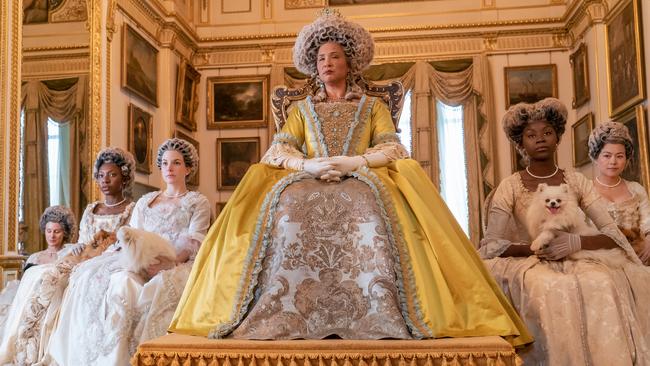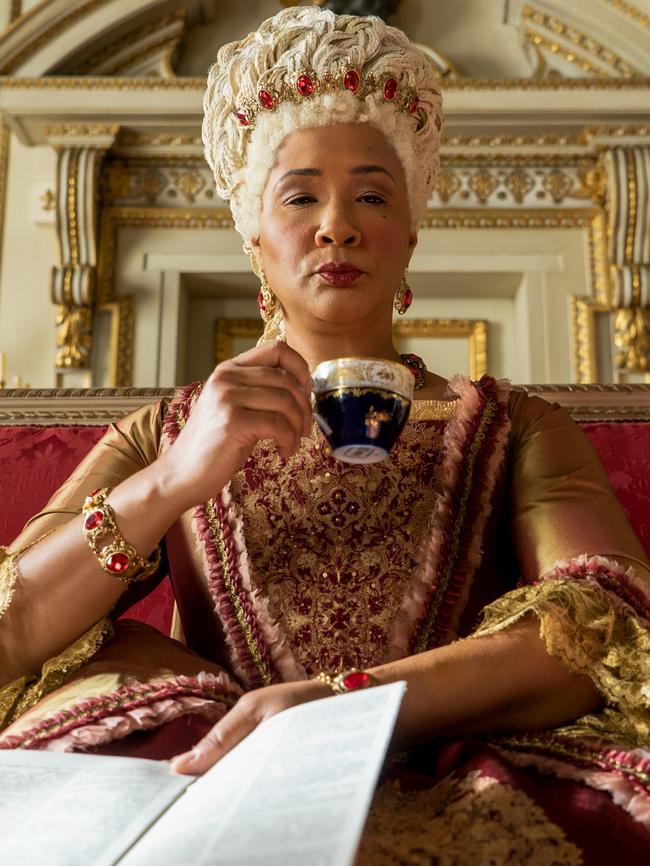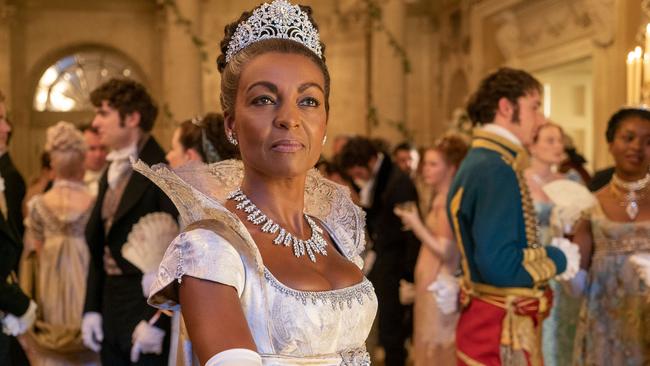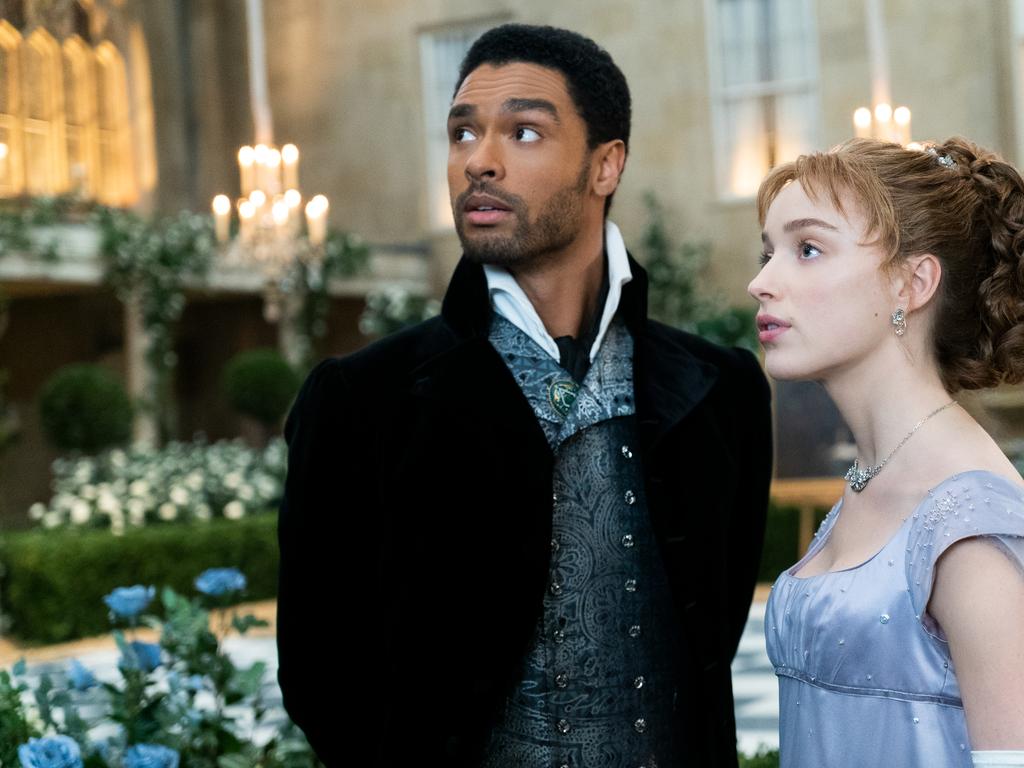Woke vanity of Bridgerton whitewashes the race struggle

So much froth and bubble. Let’s consider the facts.
English court society in the early 19th century was a white elite atop a multiracial empire. The hereditary aristocracy was morally censorious and ethnically narrow. It owed its wealth to inherited property and the profits made by slavers, plantation owners and commercial entities such as the British East India Company that were busy ransacking India. Edmund Burke, the father of British conservatism, regarded his campaign against the company’s plunder of India the “cause on which I value myself the most”.

Nor is there any solid evidence that the German-born Queen Charlotte was black. That’s really just a genealogical theory prosecuted by amateur Portuguese historian Mario de Valdes y Cocom. It has been pinballing around the internet and has met with scant scholarly support — but hey, it’s good enough for Netflix.
Bridgerton’s Queen Charlotte appears to be a formidable and manipulative monarch, but in reality she was restricted to the care of her husband, the mad King George III, and her many children, her influence on matters of state being indirect and in the form of recommendations.
From the moment of the king’s incapacitation, the British Empire was ruled by the ostentatious and famously corpulent future George IV as prince regent, and Queen Charlotte’s world — though not her skin colour — manifestly darkened. The Regency era began in 1811. Bridgerton opens in 1813, when it was in full swing.
As Australians we are inclined to look at this period with eyes unclouded by sentiment and a keen appreciation of the harsh reality behind Regency glamour. Australia is a Georgian project. The numbers of convicts sent to these shores rose sharply during the Regency period when petty crime was on the rise, moving in lock-step with economic misery and population growth. Historian Peter Gay, in his groundbreaking study of the period, concludes that the law “grew more stringent, religiously safeguarding property — or, rather, safeguarding property as if it were a new religion”.
Eight convict ships left England for NSW in 1813, the year Bridgerton opens. In the series there is a fleeting nod to this background social reality, but only as a cautionary tale of the fate that may await one of its characters if she fails to behave correctly.
The costumes are gorgeous, the backdrops magisterial — but Bridgerton offers a weak-headed, saccharine, shallow and partial vision of Regency society. Central to this vision is the notion of a multicultural aristocracy in which the exploited races become not only the beneficiaries of imperial exploitation but members of the exploitative class: the ruling elite. Imagine a World War II film in which a cast of Orthodox Jews plays Hitler’s henchmen. It’s that degree of nuts.

At one point in the series the Duke of Hastings (played by English-Zimbabwean actor Rege-Jean Page) and Lady Danbury (Adjoa Andoh) add some conceptual depth to the largely visual picture of a benign multicultural aristocracy. Remarks Lady Danbury: “Look at our queen, look at our king. Look at their marriage, look at everything it is doing for us, what it is allowing us to become. We were two separate societies, divided by colour until a king fell in love with one of us.”
Nice idea. But the king fell in love with a German princess. The black queen theory, wild as it is, asserts only that Charlotte’s line, five centuries earlier, was linked to a woman of Moorish — though not necessarily African — descent. To put it another way, if Charlotte were African then so, too, was her son, the prince regent. And nobody has ever seen evidence of that.
This seems to be Bridgerton’s logic: by injecting people of colour into the upper echelons of Regency society, we perform an act of historical redress or restitution. Turn the apex of British society in the Regency era into an overdressed version of the crowd you might encounter today at a bar in Kensington or Soho, or maybe Paddo in Sydney, and tolerance is magically normalised. It no longer seems like a historical exception.
However, by denying the reality of racial and social injustice, the series erases historical reality: real people have struggled and died for a more tolerant and equal world. It’s a whitewash.
The writers of the Bridgerton series and the popular novel on which it is based claim these distortions are legitimised because the historical vision is at heart a fantasy. That’s bosh. Game of Thrones is a fantasy; it could never be mistaken for a real time or place. Bridgerton goes to extraordinary lengths to immerse its viewers in the architecture of the Regency period, the dress codes of the period, its hairstyles, social customs, mores, values, mating rituals, even its diction and speech patterns. It is, by and large, historically accurate. Its fantasies are restricted to two contemporary political pieties: race and gender.
I suppose pieties have their place. Colourblind casting worked quite well in the 2019 comedy-drama The Personal History of David Copperfield, based on Charles Dickens’s most autobiographical novel. But that film, with Dev Patel as Copperfield, fixes a sharp eye on the cruel realities of class and the treacherous snakes-and-ladders game of social opportunity that its eponymous hero is forced to play.
Bridgerton, to the contrary, conflates class and race to create a fantastical multicultural gentry that serves only to erase politics, erase history and erase memory.
At best it’s a form of extravagant virtue signalling. At worst it’s the cinematic love child of agitprop and cancel culture. But it trivialises the political history of race and colour. And it’s decidedly off-colour.




Episode four of new Netflix period romp and bodice-ripper Bridgerton begins with a visit to court filmed in the gilded interior of Lancaster House. Lady Violet Bridgerton and her winsome daughter Daphne stroll past flocks of sumptuously dressed multicultural dukes and duchesses — African, Caribbean, Indian. The climax of the scene is an encounter with Queen Charlotte, the putative black monarch.